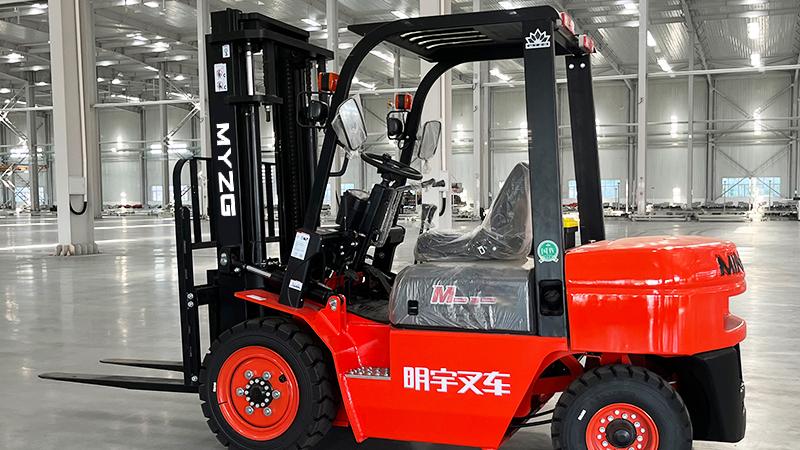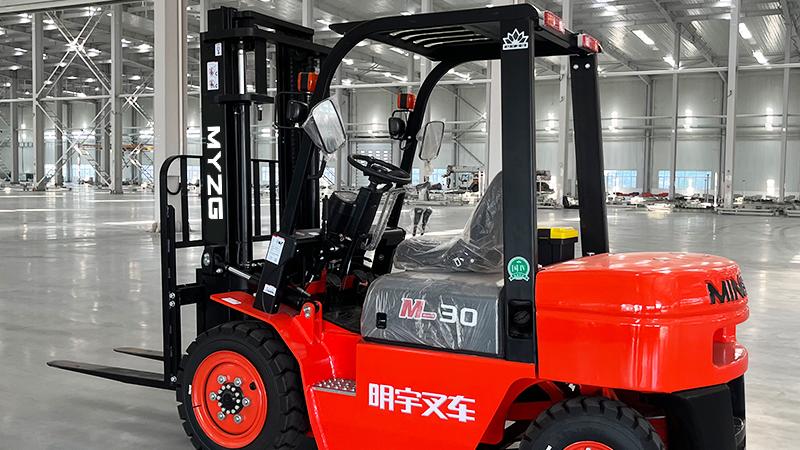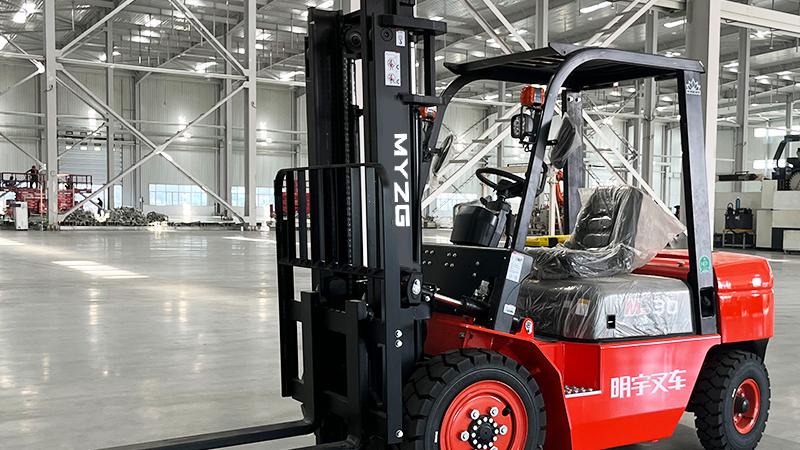In the bustling environment of warehouses, logistics centers, and manufacturing plants, the diesel forklift stands as an indispensable workhorse, prized for its raw power, durability, and ability to operate for extended shifts. However, with this power comes a significant operational cost: fuel consumption. For fleet managers and business owners, accurately calculating and understanding the hourly fuel consumption of a diesel forklift is not merely an academic exercise; it is a critical component of budgeting, operational planning, and environmental stewardship. The question of "how much fuel does it use per hour?" is directly tied to the bottom line. Calculating this figure involves understanding a blend of theoretical formulas, real-world variables, and manufacturer specifications, all of which paint a comprehensive picture of a machine's efficiency and total cost of ownership.
The foundational approach to estimating a diesel forklift's fuel consumption begins with a general industry rule of thumb. It is commonly estimated that a diesel forklift engine will consume approximately between 2.0 to 3.5 liters of fuel per hour for every 100 horsepower it produces. This provides a rough baseline. For a more precise and manufacturer-endorsed calculation, one can turn to a specific formula. The formula states that fuel consumption per hour (in liters) is equal to the engine's horsepower (HP) multiplied by a specific fuel consumption factor (lb/HP/hr), and then multiplied by a conversion factor to translate pounds of fuel into liters. The specific fuel consumption factor for a standard diesel engine typically ranges from 0.3 to 0.4 pounds of fuel per horsepower per hour. The conversion factor from pounds of diesel to liters is approximately 0.173, as one liter of diesel fuel weighs roughly 5.76 pounds. Therefore, the formal calculation becomes: Hourly Consumption (liters) = HP x Specific Fuel Consumption (e.g., 0.35 lb/HP/hr) x 0.173. For instance, a 100 HP diesel forklift would theoretically consume: 100 HP x 0.35 lb/HP/hr x 0.173 = 6.055 liters per hour. This value serves as a strong theoretical starting point under ideal, steady-state conditions.
However, anyone who has managed a fleet knows that a warehouse floor is far from a laboratory. The theoretical calculation must be heavily adjusted for a multitude of operational factors that dramatically influence real-world fuel burn. The load capacity and the intensity of the application are primary drivers. A diesel forklift operating at or near its maximum load capacity consistently will consume significantly more fuel than one handling lighter loads. Furthermore, the duty cycle is paramount. A forklift running non-stop in a high-throughput shipping department will have a vastly different consumption rate compared to one used intermittently for a few moves per hour. Operator behavior is another critical and often underestimated variable. Aggressive acceleration, high-speed travel, and improper shifting can increase fuel consumption by as much as twenty-five percent or more. Training operators in efficient driving techniques, such as smooth acceleration and deceleration, is not just a safety measure but a direct fuel-saving strategy.
The physical work environment itself imposes its own demands on fuel usage. Terrain is a major factor; operating on inclined surfaces, uneven ground, or outdoor gravel requires substantially more engine power and, consequently, more fuel compared to moving on smooth, level concrete floors indoors. Tire condition and type also play a role; under-inflated tires increase rolling resistance, forcing the engine to work harder. Even ambient temperature can have an effect, as cold engines are less efficient until they reach their optimal operating temperature. Beyond these, the mechanical condition of the diesel forklift is the bedrock of fuel efficiency. A poorly maintained machine is a fuel-guzzling machine. Clogged air filters, dirty fuel injectors, old engine oil, and misaligned brakes all create additional strain on the engine, forcing it to expend more fuel to perform the same amount of work. A stringent and proactive maintenance schedule is non-negotiable for keeping fuel consumption in check. This includes regular filter changes, timely oil changes, and ensuring the engine is properly tuned.
Post time:Aug.21.2025



